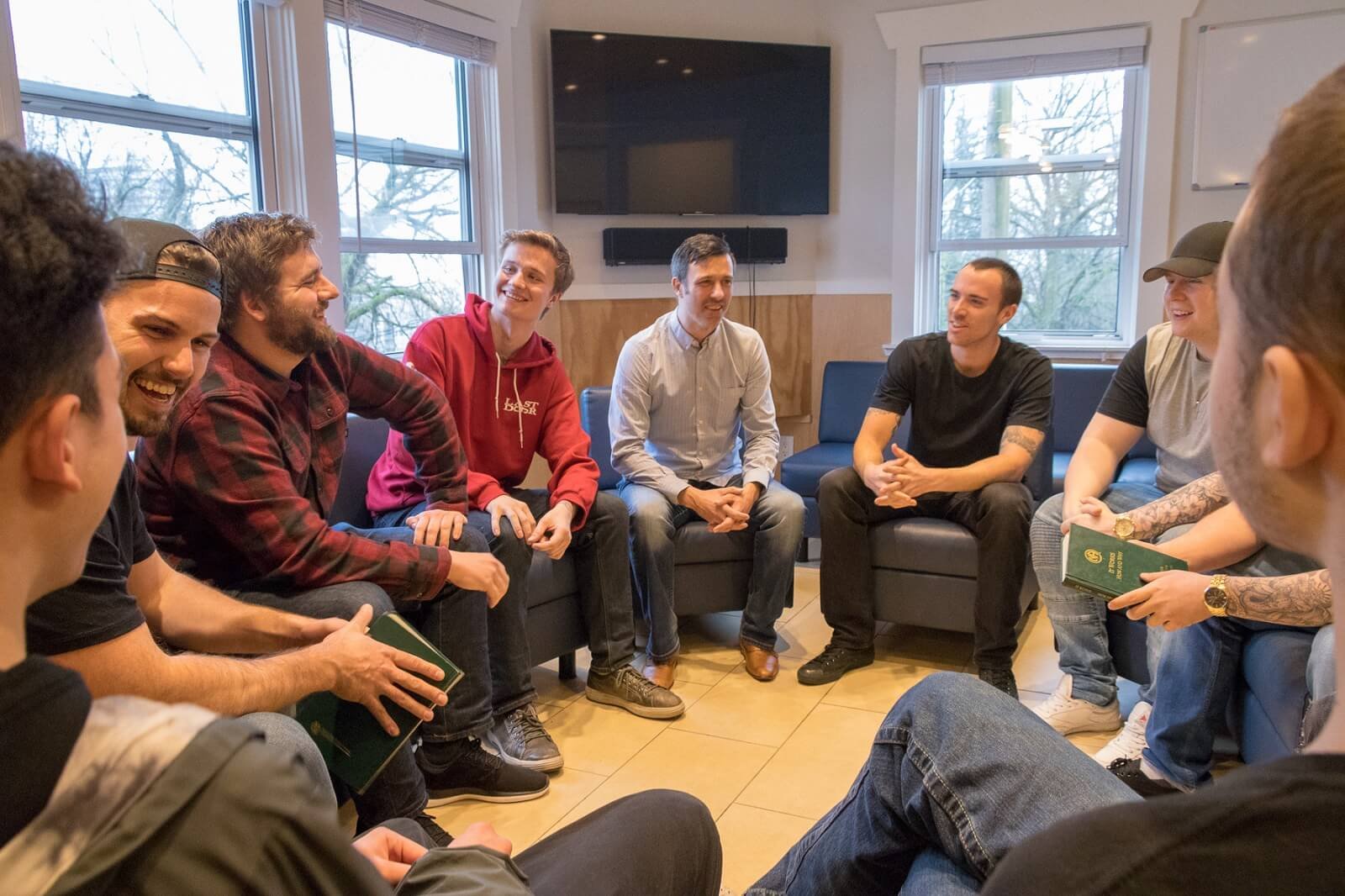Introduction: Love What You Have, Before Life Teaches You To Lov – Tymoff
Love what you have, before life teaches you to lov – Tymoff. This phrase is like a warm hug, reminding us to appreciate the good things we already have. Instead of wanting more and more, we should find joy in our present moments. When we love what we have, we become happier and more grateful.
Life can be busy and sometimes stressful. But when we take a moment to appreciate what we have, it can make everything better. Gratitude is like a magic key that opens the door to happiness. We’ll explore this idea in this blog post and learn how to practice gratitude every day.
In this blog, you will discover why it’s important to “Love what you have, before life teaches you to lov – Tymoff.” We will share simple ways to be thankful, and how gratitude can improve your life. Let’s dive in and learn about loving what we already have!
Why It’s Important to Appreciate What You Have
Appreciating what you have is very important. When you Love what you have, before life teaches you to lov – Tymoff, you feel happier. Gratitude helps you see the good things in life, even when things are tough.
When you appreciate what you have, you feel less stressed. It helps you focus on positive things instead of worrying about what you don’t have. This makes your mind calm and peaceful.
Gratitude also makes your relationships better. When you show appreciation to people around you, they feel valued and loved. This makes your friendships and family bonds stronger.
It is also good for your health. Studies show that grateful people sleep better and have fewer aches and pains. So, by loving what you have, you can feel better both inside and out.
Simple Ways to Practice Gratitude Every Day
Practicing gratitude is easy and fun. One way to Love what you have, before life teaches you to lov – Tymoff, is to keep a gratitude journal. Write down three things you are thankful for every day. It can be something small like a sunny day or a kind word from a friend.
Another way is to say thank you more often. Thank the people around you for little things, like helping with homework or making dinner. This shows them you appreciate their efforts.
You can also practice mindfulness. Take a few minutes each day to sit quietly and think about the good things in your life. This helps you focus on the present moment and feel grateful.
Lastly, try to help others. When you do something kind for someone else, it makes you feel happy too. Helping others reminds you of the many blessings you have in your own life.
The Joy of Small Moments: How to Find Happiness in Daily Life
Finding joy in small moments is a wonderful way to Love what you have, before life teaches you to lov – Tymoff. Everyday moments can bring a lot of happiness if you pay attention to them.
For example, enjoy your morning cup of tea or coffee. Savor the taste and warmth. Notice how it makes you feel relaxed and ready for the day. These small moments of joy add up and make your day brighter.
Taking a walk and enjoying nature is another way. Look at the flowers, trees, and birds. Feel the fresh air on your face. Nature has a calming effect and helps you feel grateful.
Spending time with loved ones also brings joy. Play a game, watch a movie, or just talk. These moments create happy memories and strengthen your relationships.
Remember to smile and laugh often. Laughter is a great way to feel happy and grateful. So, enjoy the small moments and find happiness in your daily life.
Love What You Have, Before Life Teaches You To Lov – Tymoff: Real-Life Stories
Real-life stories can inspire us to Love what you have, before life teaches you to lov – Tymoff. Many people have learned this lesson through their experiences.
One story is about Sara, who lost her job but found joy in spending more time with her family. She realized that her family was her greatest blessing, and she started appreciating them more.
Another story is about John, who had a serious illness. During his recovery, he learned to appreciate the simple things in life, like a walk in the park or a good book. He found happiness in these small moments.
These stories teach us that even in difficult times, we can find reasons to be grateful. They remind us to appreciate what we have now, before life teaches us to love what we took for granted.
Real-life stories show us that gratitude can change our perspective and make us happier. So, let’s take inspiration from these stories and start loving what we have today.
How Gratitude Can Make Your Relationships Stronger
Gratitude can make your relationships stronger. When you love what you have, before life teaches you to lov – Tymoff, you show appreciation to the people around you. This makes them feel valued and loved.
One way to show gratitude is by saying thank you. Thank your parents for their support, your friends for their friendship, and your teachers for their guidance. Simple words of thanks can mean a lot.
You can also write thank-you notes. A handwritten note shows that you took the time to appreciate someone’s kindness. It’s a small gesture that can have a big impact.
Doing something nice for others is another way to show gratitude. Help a friend with their homework, cook a meal for your family, or simply listen when someone needs to talk. Acts of kindness strengthen your bonds with others.
Gratitude helps you focus on the positive aspects of your relationships. It makes you see the good in people and appreciate their presence in your life. So, practice gratitude and make your relationships stronger.
Easy Tips for Teaching Kids to Be Grateful
Teaching kids to be grateful is important. When they learn to love what they have, before life teaches them to love – Tymoff, they grow up happier and more content.
One tip is to set a good example. Show gratitude in your daily life, and kids will follow. Say thank you often and appreciate the little things.
Create a gratitude jar. Ask kids to write down things they are thankful for and put them in the jar. At the end of the week, read them together. This helps kids focus on the positive.
Encourage kids to help others. Volunteering or doing acts of kindness teaches them to appreciate what they have. It also shows them the joy of giving.
Teach kids to say thank you. Whether it’s for a gift or a kind gesture, saying thank you is important. It makes them aware of others’ efforts and shows appreciation.
Helping kids practice gratitude daily can be fun. Use games, stories, and activities to make it interesting. With these tips, kids can learn to be grateful and happy.
Love What You Have, Before Life Teaches You To Lov – Tymoff: Lessons from Nature
Nature has many lessons to teach us about gratitude. When you love what you have, before life teaches you to lov – Tymoff, you see the beauty in nature and learn to appreciate it.
One lesson is to be present. Nature is always in the moment. The birds sing, the flowers bloom, and the sun rises and sets. Nature teaches us to enjoy each moment and be grateful for it.
Another lesson is resilience. Trees stand tall through storms, and flowers bloom after rain. Nature shows us that even in tough times, we can find strength and beauty. This helps us appreciate our own resilience.
Nature also teaches simplicity. A walk in the park, a sunset, or a starry night are simple pleasures that bring joy. Nature reminds us that we don’t need much to be happy.
By spending time in nature, we can learn to appreciate the simple things in life. Nature’s lessons help us to be grateful and find happiness in our daily lives.
How to Stop Comparing Yourself to Others
Comparing yourself to others can make you unhappy. To love what you have, before life teaches you to lov – Tymoff, it’s important to stop comparing and start appreciating yourself.
One way to stop comparing is to focus on your strengths. Everyone has unique talents and abilities. Celebrate what you are good at and be proud of your achievements.
Another way is to limit time on social media. Social media often shows a perfect image of others’ lives, which can make you feel inadequate. Spend less time online and more time enjoying real-life moments.
Practice self-compassion. Be kind to yourself and accept your flaws. Understand that everyone has challenges and imperfections. Treat yourself with the same kindness you would offer a friend.
Set your own goals. Focus on what you want to achieve and work towards it. Don’t worry about what others are doing. Your journey is unique and valuable.
By stopping comparisons, you can love what you have and be happier. Remember, you are unique and special just as you are.
The Power of Mindfulness: Being Present in the Moment
Mindfulness is a powerful tool for gratitude. To love what you have, before life teaches you to lov – Tymoff, practicing mindfulness helps you appreciate the present moment.
Mindfulness means paying attention to what is happening right now. When you are mindful, you notice the sounds, smells, and sights around you. This helps you feel more connected to the present.
One way to practice mindfulness is through meditation. Sit quietly and focus on your breath. Notice how it feels as you breathe in and out. This simple practice helps you feel calm and grateful.
Another way is to do one thing at a time. When you eat, focus on the taste and texture of the food. When you walk, notice the sensation of your feet touching the ground. This helps you enjoy every experience more deeply.
You can also practice mindful listening. When someone is talking to you, give them your full attention. Listen carefully to their words and feelings. This shows respect and helps strengthen your relationships.
Mindfulness helps you appreciate the little things in life. By being present, you notice the beauty around you and feel grateful for it. So, practice mindfulness and love what you have, before life teaches you to lov – Tymoff.
Turning Challenges into Opportunities for Growth
Challenges are a part of life. To love what you have, before life teaches you to lov – Tymoff, it’s important to see challenges as opportunities for growth.
Every challenge teaches us something valuable. When you face a difficult situation, think about what you can learn from it. This helps you grow stronger and wiser.
Challenges also help you develop resilience. When you overcome obstacles, you build the strength to face future difficulties. This makes you more confident and capable.
Facing challenges can also reveal your hidden strengths. You might discover talents or abilities you didn’t know you had. Embrace challenges as a way to explore your potential.
Support from others can make challenges easier to handle. Don’t be afraid to ask for help from family and friends. Their support can provide comfort and encouragement.
By viewing challenges as opportunities, you can find gratitude even in tough times. This mindset helps you love what you have and appreciate the journey of life.
Supporting Connections: The Core of Gratitude
Strong connections are at the heart of gratitude. To love what you have, before life teaches you to lov – Tymoff, it’s important to nurture your relationships.
Spend quality time with the people you care about. Whether it’s playing games, cooking together, or just talking, these moments strengthen your bonds.
Show appreciation to your loved ones. Thank them for their kindness and support. Simple gestures like a hug or a thank-you note can mean a lot.
Listen actively when others talk to you. Give them your full attention and show that you value their words. This creates a deeper connection and fosters mutual respect.
Acts of kindness can also strengthen relationships. Help a friend with their homework, surprise your parents with breakfast, or simply offer a kind word. These actions show love and appreciation.
By supporting your connections, you create a network of love and gratitude. This makes your relationships stronger and your life happier.
Gratitude as an Everyday Practice: Developing Consistency
Consistency is key in developing gratitude. To love what you have, before life teaches you to lov – Tymoff, make gratitude a daily habit.
Start each day with a positive thought. Think of one thing you are grateful for before you get out of bed. This sets a positive tone for the day.
Keep a gratitude journal. Write down three things you are thankful for every night before bed. This helps you focus on the good things in your life.
Incorporate gratitude into your routines. Say thank you often, whether it’s to your family, friends, or even yourself. Gratitude can become a natural part of your day.
Practice gratitude during meals. Take a moment to appreciate the food on your plate and the effort that went into preparing it. This makes mealtime a moment of gratitude.
Share your gratitude with others. Tell the people around you why you appreciate them. This spreads positivity and strengthens your relationships.
By making gratitude a consistent practice, you can transform your outlook on life and love what you have every day.
The Ripple Effect of Gratitude: Spreading Positivity
Gratitude has a ripple effect that spreads positivity. When you love what you have, before life teaches you to lov – Tymoff, your gratitude can inspire others.
When you show gratitude, it encourages others to do the same. Saying thank you or expressing appreciation can brighten someone’s day and motivate them to pass on the kindness.
Gratitude can create a positive atmosphere in your home, school, or community. When people feel appreciated, they are happier and more cooperative. This fosters a sense of harmony and well-being.
Acts of kindness fueled by gratitude can have a big impact. Helping a neighbor, sharing a smile, or volunteering your time can create a chain reaction of goodwill.
Sharing your stories of gratitude can inspire others. Talk about the things you are thankful for and how it has changed your life. Your positive attitude can encourage others to adopt a similar mindset.
By spreading gratitude, you contribute to a more positive and compassionate world. Your loving actions can inspire others to love what they have and appreciate the blessings in their lives.
Conclusion: Embracing Gratitude for a Happier Life
Embracing gratitude can lead to a happier and more fulfilling life. When you love what you have, before life teaches you to lov – Tymoff, you appreciate the present moment and find joy in the little things.
Gratitude helps you focus on the positive aspects of your life. It strengthens your relationships, improves your health, and makes you more resilient. By practicing gratitude daily, you can develop a consistent habit that enhances your well-being.
Remember that challenges are opportunities for growth. Support your connections and spread positivity through acts of kindness. By doing so, you create a ripple effect of gratitude in your community.
So, start today. love what you have, before life teaches you to lov – Tymoff. Embrace gratitude and watch how it transforms your life into a rich tapestry of happiness and fulfillment.





